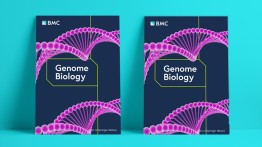Professor Samuel Keene and Alumna Sophie Jaro ME’22 Published in the BMC Genome Biology Journal
POSTED ON: October 4, 2022

Cover of BMC Genome Biology Journal
Cooper alumna Sophie Jaro ME’22 and Samuel Keene, professor of electrical engineering, recently published in the BMC Genome Biology Journal 23.184 (2022). The publication is “MIRTH: Metabolite Imputation via Rank-Transformation and Harmonization.”
Read more about the research here.
ABSTRACT
Out of the thousands of metabolites in a given specimen, most metabolomics experiments measure only hundreds, with poor overlap across experimental platforms. Here, we describe Metabolite Imputation via Rank-Transformation and Harmonization (MIRTH), a method to impute unmeasured metabolite abundances by jointly modeling metabolite covariation across datasets which have heterogeneous coverage of metabolite features. MIRTH successfully recovers masked metabolite abundances both within single datasets and across multiple, independently-profiled datasets. MIRTH demonstrates that latent information about otherwise unmeasured metabolites is embedded within existing metabolomics data, and can be used to generate novel hypotheses and simplify existing metabolomic workflows.




